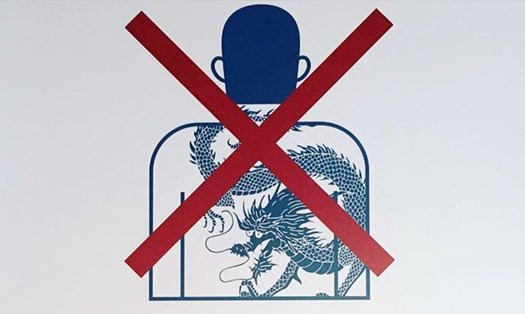Allergies
Tattoos can trigger allergic reactions, most commonly allergies to tattooed inks. Reactions can occur with any color, but the most common is yellow and red tattooing.
According to the American Academy of Dermatology, an allergic reaction can occur immediately, a few weeks later, or even decades after tattooing. The academy says joint replacement surgeries or HIV antviral treatment can trigger these reactions.
I have seen many people come to our clinic with some very bad tattoo reactions, says Dr Crystal Aguh, an assistant professor of dermatology at the Johns Hopkins University.
According to Dr. Aguh, yellow squid is often sensitive to sunlight, so every time it is sunned, it is necessary to cover the tattoo to avoid reactions, but it will disappear after a few years. Meanwhile, the reaction to red tattooing is most common. For some people, they only have a very mild allergy such as a slight swelling or itching. However, in some other cases, red tattoo squid can cause serious reactions such as swelling such as boils, blisters and lumps that appear on the skin, causing peeling, sometimes even pus from the tattooed area.
If those signs are accompanied by difficulty breathing, rapid heartbeat, dizziness, stomach pain, pain in the tattoo, red body lumps or hives, then these are serious health warning signs, patients need to immediately go to the hospital.
In a few cases, tattoo artists may suffer from neuropathy. "It is a persistent, almost chronic inflammation that causes the entire tattoo to bulble in the spot with pigmentation and the skin to become dark," says Dr. Aguh.
Lymphatic disease
Another group of researchers studied trees with tattoos. In the lymph nodes of the deceased, they found black carbonate, which were easily broken down into micro-particles called nano seeds. However, the most worrying thing about the discovery was that the eucalyptus triads contained toxic heavy metals including coban, nickel and chromium. Heavy metals are sometimes added to tattoo pigmentation as preservatives.
There have been reports from scientific documents that tattoo squares contain all the pigmentation from the type used in the printers squid to the pigment used in car repainting, says Dr. Linda Katz, director of the US Food and Drug Administration.
Skin diseases
Dermatologists warn that a tattoo can trigger psoriasis in people with this gene or spread them if they are suffering from the disease.
Other skin diseases can also appear: eczema (inflammation, itching, skin irritation); pharyngitis (losing skin pigmentation in spots); sarcoidosis (an inflammatory disease); lichen planus (itedness, purple swelling); even skin cancer.
The American Academy of Dermatology recommends not getting tattoos if the body is prone to scars or has had a side scar.








